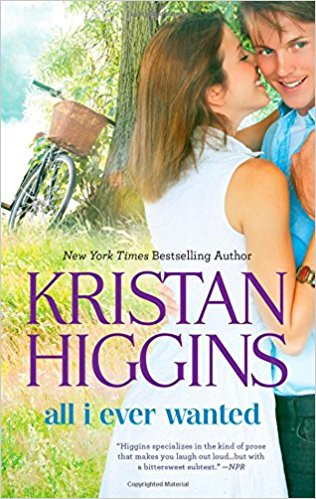 I’ve been reading Higgins for reasons I previously explained, and I’m still feeling an ambivalence about her books. This book, too, is funny, and there were some great scenes in. But here, as well, was a silly heroine. Now, she wasn’t silly 100% of the time, fortunately. No, she was both very good at her job as a marketing specialist and with children.
I’ve been reading Higgins for reasons I previously explained, and I’m still feeling an ambivalence about her books. This book, too, is funny, and there were some great scenes in. But here, as well, was a silly heroine. Now, she wasn’t silly 100% of the time, fortunately. No, she was both very good at her job as a marketing specialist and with children.
The book is about Callie Grey, who’s just hit thirty without being married,* and Ian McFarland, who’s just moved to their small Vermont town to take over the vet practice there. Callie’s reeling because she’s just found out that her long-time crush and ex-short-term-boyfriend (and current boss) is seeing someone else seriously. He insensitively reveals this after giving her a sweet birthday present. She is rather obsessed with him, and (too?) much of the book is spent on him.
Ian is a bit of an enigma, on top of being socially inept and kind of a jerk at times. But we have faith that he’s redeemable and that there’s probably a good explanation for him being the way he is (there is). Callie, on the other hand, is super-friendly and everyone loves her. She offers to help him with PR because his vet practice is at risk of suffering due to his poor people skills.
The setup is fine, but here is some of the silly:
- Callie makes a scene in the DMV when she’s blubbering over her ex’s new relationship. Also funny, because it’s where she meets Ian, who rudely accuses her of having “verbal diarrhea.”
- Callie thinks it’s a good idea to buy some over-the-counter herbal concoction to get rid of her “food baby” overnight. This is idiotic. Do people really think you can shrink overnight? I don’t get it. However, also funny, because “food baby.”
- Callie hits a turkey in her car and thinks it’s dead. She races to Ian’s and gets, well, hysterical about the poor, innocent bird. Her overreaction irritated me. Yet also funny, because the turkey comes back to life and trashes Ian’s place while they run around trying to corral it out (but again, she’s acting a little silly during this, so…).
- All the women in town (at least those who have a pet) make unnecessary appointments with Ian in order to meet him and check him out, all on the same day. Really? Would that many women do that? Maybe I’m just not tuned into the normal woman (Truth).
So I’m definitely not immune to the humor in the book, even if the silliness grates. Below is a snippet from my favorite scene (Callie is escorting a group of five-year-old Brownies on a visit to the vet clinic, and Ian is hiding in the back before being coerced out to face them):
“Dr. McFarland,” I said, “can you tell us some of the most common operations you do?”
He shot me a grateful look. “Okay, well, we neuter and spay animals so they can’t, um, have babies … Uh, I remove tumors, set broken bones—please don’t touch that,” he said as Hayley began squeezing the pump of a blood pressure cuff.
“Maybe we could move on, Dr. McFarland,” I suggested.
…
We herded the girls back into the hall. “Ian, why don’t you examine Angie and sort of show them what you look for,” I suggested in a low voice. “And if you gave out a souvenir, that would be great.”
“I don’t have souvenirs, Callie. This is not a gift shop,” he said tightly.
“Tongue depressors, Ian. Cotton balls. They’re five. They won’t care.”
He nodded. Swallowed.
I liked this scene because it showed Callie being highly competent at something, and the scene is also very funny.
Higgins definitely captures a great voice for Callie, who is very easy to understand. Like all her characters, she’s self-deprecating and funny. She’s also well-loved by her family, including her extremely grumpy grandfather, who she lives with. The book is told in first person only from Callie’s perspective, but despite that, the other characters are very real. Especially Ian, who was probably a little difficult to write because he isn’t the most charming character.
The book’s dialogue and internal thought is natural and witty at appropriate times:
One does not often see one’s grandfather naked in one’s bathroom, after all. And thank the merciful Christ for that.
Finally, Higgins brings us into the setting with wonderfully placed details so there’s no doubt we’re in small-town Vermont or whatever specific setting the scene is in. And from the sample of Higgins I’ve read, I’ve seen that there’s a fairly consistent medium heat level because everything’s implied. This one is in line with that.
As ever, Higgins delivers a charming book that fans of light, small-town contemporary romance will love.
* A big deal to her. Not to everyone.
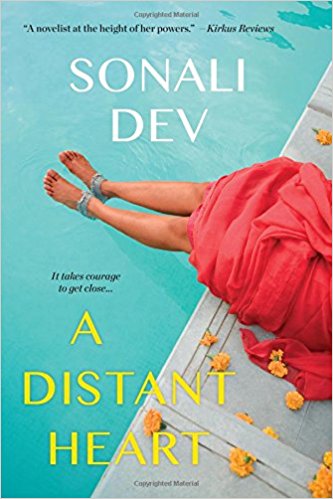 I enjoyed Dev’s first three books and was looking forward to this one. It features two minor (but important) characters from A Change of Heart, so I was excited to see their story.
I enjoyed Dev’s first three books and was looking forward to this one. It features two minor (but important) characters from A Change of Heart, so I was excited to see their story.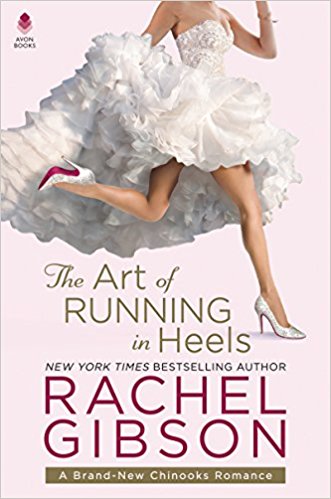 For anyone who enjoyed the first six books from this series, the release of a seventh is pretty exciting. It’s been seven years since #6, after all.
For anyone who enjoyed the first six books from this series, the release of a seventh is pretty exciting. It’s been seven years since #6, after all.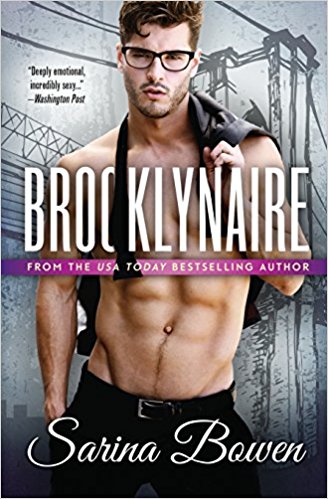 First off, I love the title of this book. It’s so perfect.
First off, I love the title of this book. It’s so perfect.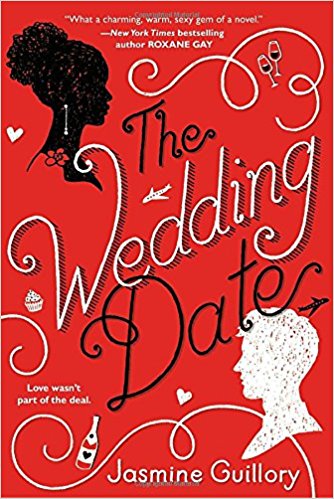 There’s been a fair bit of hype about The Wedding Date. So I went into it wondering if the book would live up to it. I think it does.
There’s been a fair bit of hype about The Wedding Date. So I went into it wondering if the book would live up to it. I think it does.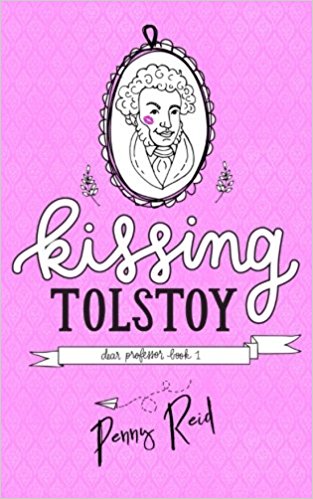 Kissing Tolstoy is the short first book in a new series from Reid, one of my favorite romance authors. It might qualify as New Adult because it’s set on a college campus and Anna’s about to graduate, but the hero, Luca, is in his early thirties. And we do get his perspective, even though it’s mostly narrated by Anna. But whatever you call it, it’s cute and sexy.
Kissing Tolstoy is the short first book in a new series from Reid, one of my favorite romance authors. It might qualify as New Adult because it’s set on a college campus and Anna’s about to graduate, but the hero, Luca, is in his early thirties. And we do get his perspective, even though it’s mostly narrated by Anna. But whatever you call it, it’s cute and sexy.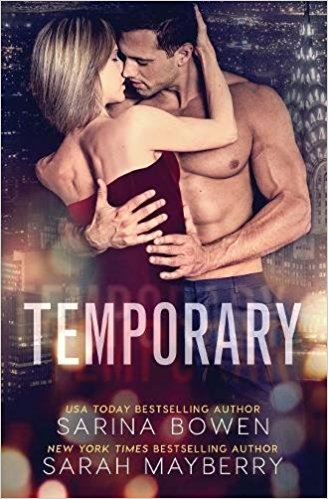 Another enjoyable read from Bowen. Mayberry is new to me, but their styles meshed together seamlessly.
Another enjoyable read from Bowen. Mayberry is new to me, but their styles meshed together seamlessly.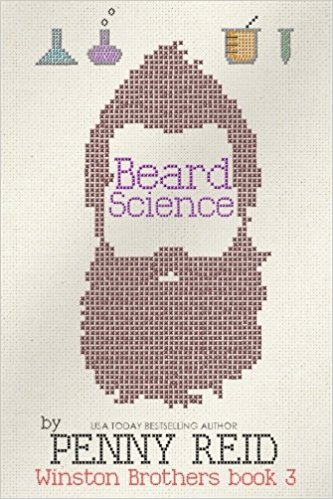 Jennifer Sylvester is kind of a joke in Green Valley, Tennessee, where she’s know as the Banana Cake Queen because—well, you can guess why. The recipe is a family secret. People don’t take her seriously. One of the locals called her “stranger than a vegetarian at a barbecue.” And on top of that, her parents are bullies, especially her mom. She’s forbidden to wear anything but her Sunday best clothes out in public. Now, she’s definitely old enough to be living on her own, but with the way her family treats her (borderline abuse), it’s really difficult for her to move out. They have her working full-time in the family bakery, but they don’t give her a salary. What she wants more than anything is to start a family, but with her so isolated, she never really meets men in any useful way.
Jennifer Sylvester is kind of a joke in Green Valley, Tennessee, where she’s know as the Banana Cake Queen because—well, you can guess why. The recipe is a family secret. People don’t take her seriously. One of the locals called her “stranger than a vegetarian at a barbecue.” And on top of that, her parents are bullies, especially her mom. She’s forbidden to wear anything but her Sunday best clothes out in public. Now, she’s definitely old enough to be living on her own, but with the way her family treats her (borderline abuse), it’s really difficult for her to move out. They have her working full-time in the family bakery, but they don’t give her a salary. What she wants more than anything is to start a family, but with her so isolated, she never really meets men in any useful way. Read on if you’r interested in more hockey hotness from Bowen and Kennedy. Stay is the second in the WAGs series (that’s wives and girlfriends for those of you not in the know) after Good Boy. And it features a cool girl and another hot hockey player.
Read on if you’r interested in more hockey hotness from Bowen and Kennedy. Stay is the second in the WAGs series (that’s wives and girlfriends for those of you not in the know) after Good Boy. And it features a cool girl and another hot hockey player.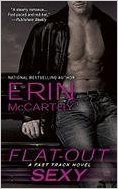 If you’d told me I’d enjoy a romance about a hot professional race car driver, I wouldn’t have believed you. But Flat-out Sexy is a solid, complex story about a race widow and a young driver. Kudos to McCarthy to making the world of NASCAR interesting to me.
If you’d told me I’d enjoy a romance about a hot professional race car driver, I wouldn’t have believed you. But Flat-out Sexy is a solid, complex story about a race widow and a young driver. Kudos to McCarthy to making the world of NASCAR interesting to me.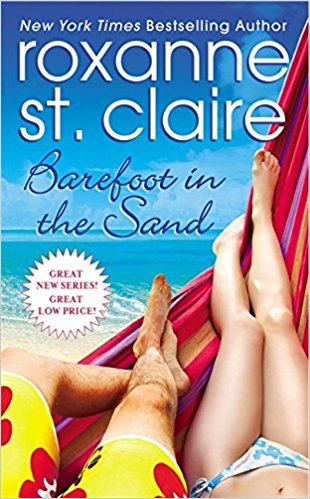 Barefoot in the Sand is presented as a fun beach read, but I thought there was more to it than that—it wasn’t a lightweight story. No, there was a lot else going on, which is how I like my romances.
Barefoot in the Sand is presented as a fun beach read, but I thought there was more to it than that—it wasn’t a lightweight story. No, there was a lot else going on, which is how I like my romances.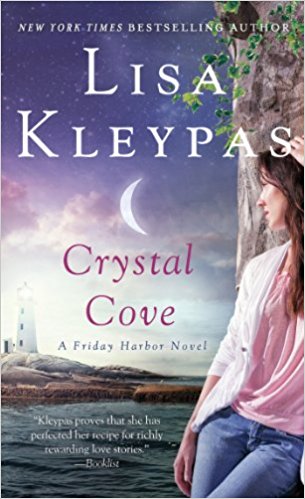 I really enjoyed the first three books in this series and was looking forward to this one, the fourth. There were elements of magic in all the other books, but they were very subtle and mostly unique. More magical realism than fantasy. This book embraces the magic of the series and runs with it and feels more urban fantasy than straight contemporary.
I really enjoyed the first three books in this series and was looking forward to this one, the fourth. There were elements of magic in all the other books, but they were very subtle and mostly unique. More magical realism than fantasy. This book embraces the magic of the series and runs with it and feels more urban fantasy than straight contemporary. I’ve been reading Higgins for reasons I previously explained, and I’m still feeling an ambivalence about her books. This book, too, is funny, and there were some great scenes in. But here, as well, was a silly heroine. Now, she wasn’t silly 100% of the time, fortunately. No, she was both very good at her job as a marketing specialist and with children.
I’ve been reading Higgins for reasons I previously explained, and I’m still feeling an ambivalence about her books. This book, too, is funny, and there were some great scenes in. But here, as well, was a silly heroine. Now, she wasn’t silly 100% of the time, fortunately. No, she was both very good at her job as a marketing specialist and with children.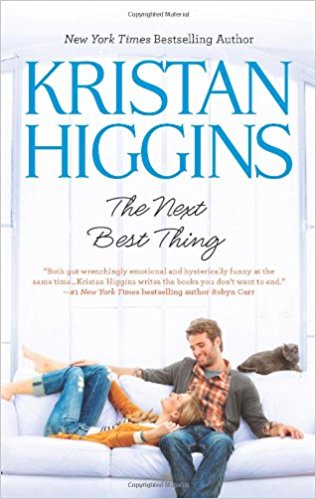 I’ve entered a bunch of romance contests. The way these things work is that judges read the beginning of the manuscript (usually between 15 and 30 pages of it) and give you as much feedback as they want. Sometimes you get a lot; sometimes a little. The feedback is always a bit all over the place. I had one entry where one judge said, “If the rest of the manuscript is as good as this, it’s publication-ready!” while another judge on the same entry gave me 60-something points out of 100 and said there was too much description and not enough internalization. So you have to take it with a grain of salt (and look for consistent criticism). They’re looking for things to comment on, after all, not just reading for pleasure.
I’ve entered a bunch of romance contests. The way these things work is that judges read the beginning of the manuscript (usually between 15 and 30 pages of it) and give you as much feedback as they want. Sometimes you get a lot; sometimes a little. The feedback is always a bit all over the place. I had one entry where one judge said, “If the rest of the manuscript is as good as this, it’s publication-ready!” while another judge on the same entry gave me 60-something points out of 100 and said there was too much description and not enough internalization. So you have to take it with a grain of salt (and look for consistent criticism). They’re looking for things to comment on, after all, not just reading for pleasure.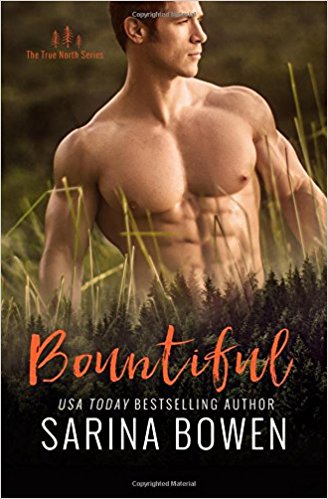 I’m a total Bowen fangirl, I know. Bountiful is the fourth book in the True North series, which continues to deliver. I’m already looking forward to the next one, even though I’m not sure who it will be about (though I have my suspicions).
I’m a total Bowen fangirl, I know. Bountiful is the fourth book in the True North series, which continues to deliver. I’m already looking forward to the next one, even though I’m not sure who it will be about (though I have my suspicions).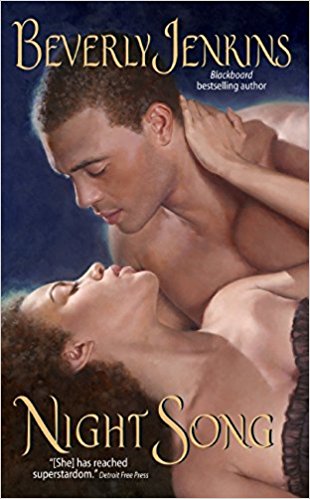 This is Jenkins’ first novel, the one that the publishing world didn’t know what to do with and amazed everyone. A story about post-Civil War black people? What? Who’d want to read that.
This is Jenkins’ first novel, the one that the publishing world didn’t know what to do with and amazed everyone. A story about post-Civil War black people? What? Who’d want to read that.